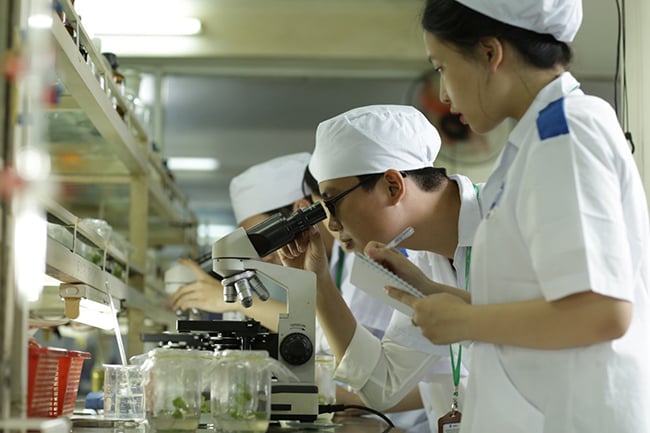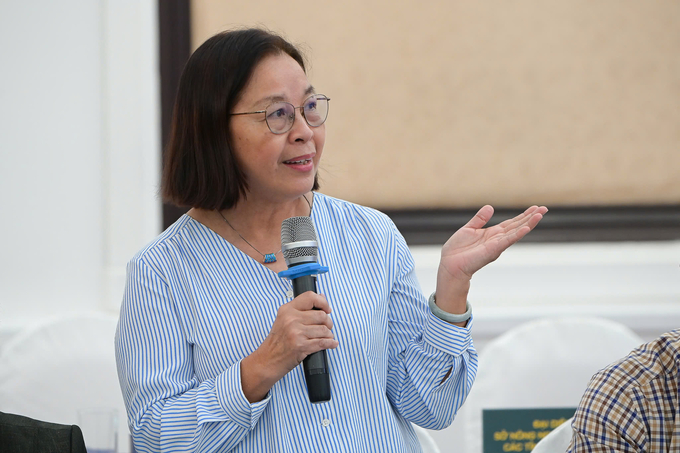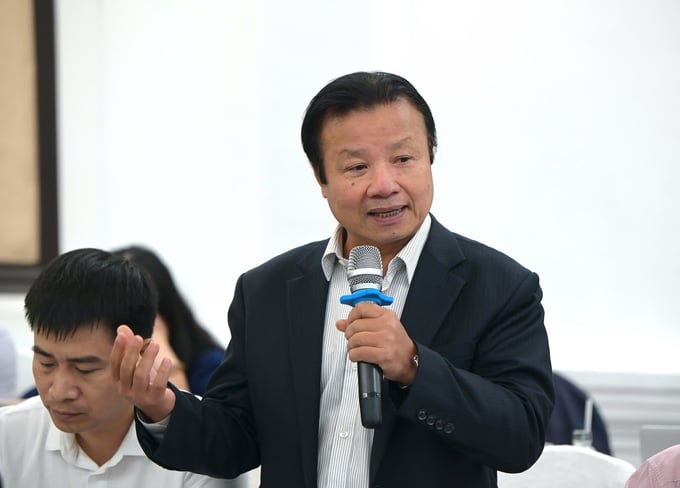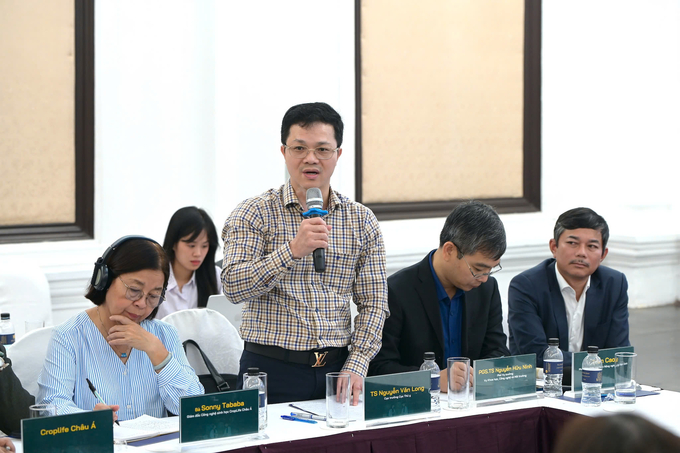November 19, 2025 | 02:57 GMT +7
November 19, 2025 | 02:57 GMT +7
Hotline: 0913.378.918
November 19, 2025 | 02:57 GMT +7
Hotline: 0913.378.918

Gene editing technology has affirmed its role and importance in Vietnamese agriculture.
In recent years, Vietnam has implemented numerous policies regarding agricultural biotechnology, including numerous initiatives and initiatives that promote the integration of biotechnology into agriculture. These include the Key Program for the Development and Application of Biotechnology in Agriculture and Rural Development until 2020, the Project on the Development and Application of Biotechnology in Aquaculture until 2020, and the Project for the Development of Agricultural Biotechnology until 2030.
The objective of the Development of Agricultural Biotechnology by 2030 is to establish a biotechnology industry that is environmentally benign, sustainable, and of high value, and that bolsters the agricultural economy. Its objective is to elevate Vietnam to a technological status that is on par with that of advanced countries in the region and globally by maximizing the research, development, and implementation potential of biotechnology on a regional and global scale.

Ms. Sonny Tababa, Biotechnology Affairs Director of CropLife Asia. Photo: Tung Dinh.
Ms. Sonny Tababa, Biotechnology Affairs Director of CropLife Asia observed that biotech crops assist Vietnam in better adapting to climate change, enhancing livelihoods, and ensuring income for the populace, particularly in remote regions and areas lacking adequate irrigation.
Ms. Sonny asserts that Vietnam is currently experiencing its most prosperous period of biotechnology development, having had a decade to observe and extensively research the accomplishments. Ms. Sonny observed that gene-editing technology has confirmed its role and importance in Vietnam's agriculture. She then recommended that Vietnam conduct a comprehensive review of its legal framework and emerging crop varieties (including agricultural products and pests) to adopt a new approach that is suitable for current needs.
Government authorities should assume the responsibility of "paving the way" for biotechnology, thereby providing producers with increased access to new technologies, according to the CropLife representative. Ms. Sonny recommended that Vietnam consult the technologies and policies of other Asian nations, including the Philippines, Thailand, and Japan, in addition to its own genetic modification research.
"CropLife observes similarities with Vietnam when examining the legal frameworks of neighboring countries." She emphasized, "I am confident that you will acquire valuable experiences as you develop biotechnologies in the future."

Professor Dr. Le Huy Ham, former Director of the Institute of Agricultural Genetics, said that Vietnam grows more than 1.3 million hectares of genetically modified crops. Photo: Tung Dinh.
The area of genetically modified corn, cotton, and soybeans in Vietnam has increased significantly, according to Prof. Dr. Le Huy Ham, the former Director of the Agricultural Genetics Institute. Vietnam has cultivated over 1.3 million hectares of genetically modified crops since 2015.
Dr. Ham underscored that producers can increase their profits per unit area by at least 1.5 to 2 times, in comparison to conventional crops, by utilizing genetically modified varieties. Vietnam has implemented synchronized legal frameworks in addition to the deployment of gene-edited varieties, according to the former Director of the Agricultural Genetics Institute.
This is a critical aspect, particularly in light of the substantial changes that have occurred in the field of gene editing. In comparison to its earlier phase of classical gene transfer, which involved copying source genes into target genes, Vietnam appears to have fallen behind as the world transitioned to gene-editing technology (marked globally around the 1990s) through techniques such as cutting out or disabling nucleic acids carrying unwanted traits.
Enhancing gene-editing technology is essential for Vietnamese products to overcome the ineffective restrictions associated with genetically modified organisms (GMOs), as per Prof. Dr. Le Huy Ham.

The Department of Animal Health believes that there needs to be an open model between managers, scientists and businesses to 'open the door' for biotechnology projects. Photo: Tung Dinh.
Dr. Ham acknowledged that there is a significant amount of work to be done, including the development of legal systems and technology. He urged scientists and media agencies to collaborate in order to create a unified system for the management of gene-edited products.
Mr. Nguyen Van Long, Director of the Department of Animal Health, emphasized that the veterinary sector is continuously exposed to new pathogens and biotechnology products from abroad about policies and coordination mechanisms in a particular agricultural sector. Furthermore, Vietnam is one of the most significant markets for animal consumption. Consequently, the veterinary system requires advanced technology that can facilitate the early diagnosis and implementation of preventive measures against diseases, particularly emerging diseases.
Director Long raised several concerns, with a particular emphasis on the policies and mechanisms that are associated with the advancement of biotechnology. The Director of the Department of Animal Health expressed concern that submitting a biotechnology project through state mechanisms could result in the "shrinking" of Vietnam's fundamental research. He suggested an open model involving regulatory agencies, scientists, and businesses to expedite the process of bringing research into the field, rather than "saving it in a drawer."
Translated by Linh Linh

(VAN) Deputy Prime Minister Tran Hong Ha convened a meeting with the MAE and relevant agencies to discuss the draft decree on national multidimensional poverty standards for the 2026 - 2030 period.

(VAN) The year 2025 marks the 10th anniversary since more than 190 countries adopted the Paris Agreement on climate change, paving the way for strengthened global action.

(VAN) The PepsiCo Foundation funded the project ‘New Harvest: Sustainable Agriculture Initiative’, focusing on regenerative agriculture and climate change.

(VAN) Dr. Nguyen Viet Hung, ILRI's Regional Director for Asia, emphasized the One Health approach in ensuring food safety and reducing antimicrobial resistance risks in livestock.

(VAN) The youth-driven initiative ‘Innovate for water, act for the future’ seeks practical, scalable solutions to Vietnam’s water challenges.

(VAN) At the Annual Science Conference of Thuyloi University, Deputy Minister Phung Duc Tien directed researchers to focus on in-depth studies, data harmonization, and solutions linked to real-world practice.

(VAN) After nearly four years of implementation, 5,187 community agricultural extension groups have been established nationwide, with 47,493 members participating.